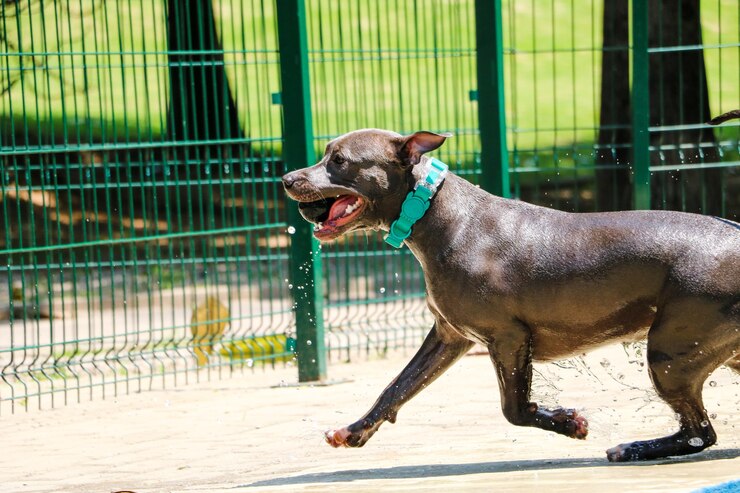Lately, my 4-month-old pit Bull has been “snorting,” and it seems like it’s getting worse. I was stressed out about it because I didn’t know what was wrong with it. But after reading this article, I found out that snorting is regular, and there are some ways to stop my dog from snorting all the time.
Introduction: Types of Snorts
Pit bulls are a type of dog known for their loyalty and friendly demeanor. However, pit bulls can also be quite vocal, and one of the ways they express themselves is through snorting. While some people find this behavior endearing, others may find it annoying or even concerning.
There are two main types of snorts that pit bulls make: honking and reverse sneezing. Honking is a short, sharp sound when the dog exhales sharply through its nose. This type of snorting is usually harmless and indicates that the dog is excited or happy.
On the other hand, reverse sneezing is a prolonged episode during which the dog inhales sharply through its nose and then makes a grunting noise. This type of snorting can be caused by allergies or other irritants and can sometimes be accompanied by coughing or gagging. If your dog seems to be having trouble breathing, you should seek veterinary attention immediately.
While both types of snorting are relatively common in pit bulls, reverse sneezing episodes can be more alarming for owners since they may appear to be struggling to breathe. If you are ever concerned about your dog’s health, consult a veterinarian for a professional opinion.
What are the Causes of Snorting?
There are many potential causes of snorting in Pit Bulls, and it can be challenging to pinpoint the exact cause in any dog. However, some of the most common causes of snorting in Pit Bulls include allergies, infections, and anatomical abnormalities.
Allergies commonly cause snorting in dogs of all breeds, including Pit Bulls. Allergies can cause a dog to experience various symptoms, including sneezing, sniffling, and snorting. If your Pit Bull is constantly sneezing and sniffling, it’s essential to take him to the vet to rule out allergies as a possible cause.
Infections are another common cause of snorting in dogs. Infections of the upper respiratory tract (such as Kennel Cough) can often lead to a dog developing a chronic cough that may result in snorting. If your Pit Bull has an infection, getting him treatment from your veterinarian as soon as possible is essential.
Anatomical abnormalities can also be a potential cause of snorting in dogs. Some dogs are born with narrow nostrils that make breathing difficult, while others may have excess tissue in their throats, leading to obstruction and snoring. If your Pit Bull has been diagnosed with an anatomical abnormality, surgery may be required to correct the problem and alleviate the snorting.
How to Stop a Pit Bull from Snorting?
If your Pit Bull is snorting, it’s likely due to allergies or a deviated septum. Allergies are the most common cause of snorting in dogs, and they can be caused by anything from pollen to dust mites to environmental irritants. A deviated septum is a condition where the bone and cartilage that divide the nostrils are off-center, which can cause snorting.
You can do a few things to help reduce your Pit Bull’s snorting. If allergies are the culprit, talk to your veterinarian about possible allergy medications or shots.
You can also try using an air purifier in your home and keeping your dog away from areas where they’re likely to encounter allergens. If a deviated septum is the issue, surgery may be necessary to correct it. In the meantime, you can help your dog by ensuring its nose is clear of any blockages and using a humidifier to keep the air moistened.
Conclusion
If your pit bull is snorting, don’t worry — you can do a few things to help stop the behavior. First, try to figure out what is causing your dog to snort. Is it excitement, anxiety, or something else? Once you know the cause, you can begin to work on stopping the behavior.
If your dog is snorting due to excitement, you can train them to stop when they start to get excited. With patience and perseverance, you can help your pit bull break its snorting habit and live a happier life.

